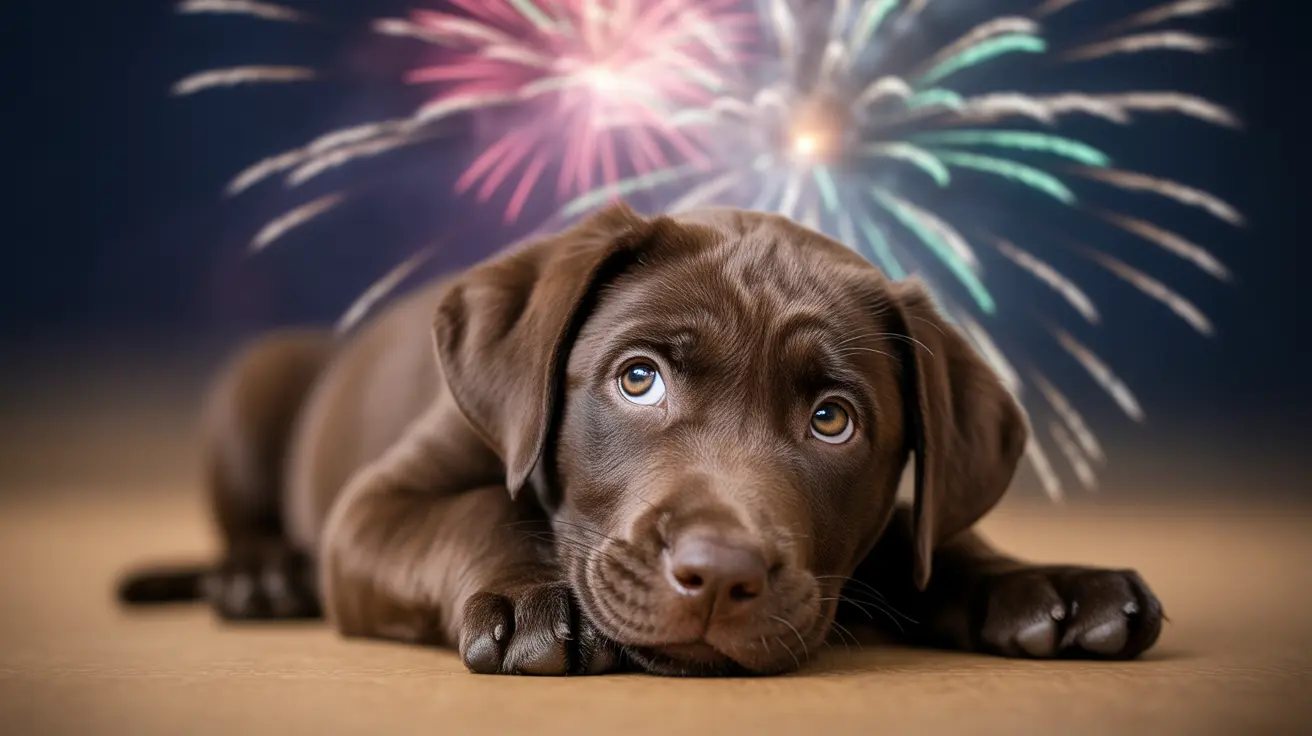Fireworks celebrations, while joyful for humans, can pose serious and sometimes fatal threats to our beloved pets and animals across communities. The RSPCA has issued urgent warnings about the devastating impact of fireworks on animal welfare, joining forces with West animal charities to call for greater consideration of animal suffering during celebratory events. Understanding how fireworks and pets interact is crucial for every responsible pet owner seeking to protect their furry family members.
The scale of this problem extends far beyond simple anxiety, with documented cases of animal deaths, injuries, and severe psychological trauma occurring annually. As firework displays become more frequent and accessible to private users, the need for comprehensive protection strategies and legislative changes has never been more pressing for pet parents and animal welfare advocates.
Understanding Fireworks Stress in Dogs and Other Pets
The loud, unpredictable sounds of fireworks trigger intense fear responses in pets, with dogs being particularly vulnerable to fireworks stress. The sudden explosive noises can cause animals to exhibit panic behaviors including trembling, excessive drooling, destructive behavior, and desperate attempts to escape or hide. Unlike thunder, which builds gradually, fireworks create sharp, startling sounds that pets cannot anticipate or understand.
Cats often respond by hiding for extended periods, while some may injure themselves trying to find secure hiding spots. The visual flashes combined with the acoustic assault create a multi-sensory experience that can overwhelm even typically calm pets. Repeated exposure during firework seasons can lead to long-term anxiety disorders and noise phobias that persist year-round.
Fireworks Impact on Horses and Livestock
Farm animals and horses face particularly severe risks during fireworks displays, with documented cases showing how these large animals can suffer fatal injuries during panic episodes. Since 2010, over 1,400 incidents involving horses have been recorded in the UK alone, including nearly 50 deaths. Horses may run into fences, gates, or other obstacles when startled, leading to serious injuries or death.
Livestock such as pigs and sheep can experience dangerous stress-induced health complications including miscarriages, gut twisting, and cardiac events. The confined nature of many farm environments can exacerbate panic responses, as animals have limited space to flee from perceived threats.
How to Protect Pets During Fireworks
Pet owners can take several proactive measures to minimize their animals' distress during firework displays. Creating a safe indoor environment with heavy curtains, calming music, or white noise can help muffle the sounds. Providing familiar comfort items like favorite toys or blankets in a secure, enclosed space allows pets to self-soothe.
Consulting with veterinarians about anti-anxiety medications or natural calming supplements before firework seasons can provide additional support for severely affected animals. Some pets benefit from desensitization training using gradually increasing recorded firework sounds, though this process requires time and professional guidance.
Maintaining normal routines and staying calm yourself helps reassure pets, as animals often mirror their owners' emotional states. Avoiding the impulse to over-comfort fearful pets can prevent reinforcing anxious behaviors while still providing necessary support.
Animal Welfare Fireworks Legislation and RSPCA Fireworks Campaign
Current legislation provides insufficient protection for animals harmed by fireworks, with no recorded prosecutions under the Animal Welfare Act for firework-related animal injuries or deaths. The RSPCA and supporting animal charities are advocating for stronger legal frameworks that would require event organizers to consider animal welfare in their planning processes.
The campaign focuses on implementing noise limits, mandatory advance notifications to local communities, and promoting low-noise fireworks alternatives that can significantly reduce animal distress while maintaining celebratory experiences for humans. These regulatory changes would create accountability for those organizing displays and provide legal recourse when animals are harmed.
Wildlife and Environmental Concerns
Beyond domestic pets and farm animals, fireworks pose threats to wildlife populations. Wild birds may abandon nests during breeding seasons when startled by explosions, and nocturnal animals can suffer fatal collisions during panic flights. Firework debris left in natural areas can create ingestion hazards for grazing animals and contaminate water sources.
The cumulative impact on ecosystem health extends beyond immediate physical harm, as repeated disturbances can alter animal behavior patterns and affect breeding cycles in sensitive species.
Frequently Asked Questions
How do fireworks affect the behavior and health of pets like dogs, cats, and horses?
Fireworks cause widespread anxiety and stress in pets, with many showing signs of fear such as trembling, hiding, or attempts to escape. Horses and livestock may panic, leading to injuries or even death due to collisions or panic-related health issues like miscarriages or gut twisting.
What practical steps can I take to protect my pets during fireworks events?
Owners are advised to attend public displays instead of using private fireworks, prepare indoor safe spaces with noise reduction measures, consult veterinarians for calming medications, and notify neighbors about fireworks to reduce surprise and stress for animals.
Are wildlife and farm animals also at risk from fireworks, and how?
Yes, fireworks can cause wild birds to abandon nests, cause fatal collisions during panic flights, and induce heart rate spikes or distress in livestock such as pigs and lambs. Firework debris can also pose ingestion or injury hazards to grazing animals.
Why are animal charities and experts calling for changes in fireworks regulations?
Current laws provide little protection for animals harmed by fireworks, and there are no prosecutions under the Animal Welfare Act for such cases. Charities like RSPCA argue for stronger legislation to require event planning to consider animal welfare, including noise limits, notifications, and use of low-noise alternatives.
The growing awareness of fireworks' impact on animal welfare represents an important step toward more compassionate celebrations. By supporting legislative changes and implementing protective measures for our pets, we can ensure that joyous occasions don't come at the expense of animal suffering. Every pet owner has the power to make a difference through informed preparation and advocacy for animal-friendly policies.






